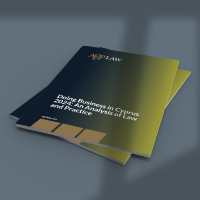
Homicide, which is to cause another person’s death in a culpable way, is considered to be the most serious of criminal offences due to the significant value our society puts on each individual’s life and because of the fact that killing someone is a fatal, permanent injury.
Murder is the most serious type of homicide as it requires an intention to kill or cause grievous bodily harm. This constitutes murder as an aggravated type of killing because it is a killing with an intent to do so. It also distinguishes murder from manslaughter as the second can include cases of homicide where the mental element of murder, the intention to kill, is missing.
The classic definition of murder is that of Sir Edward Coke (1797) 3 Institutes of the Laws of England, 47:
«Murder is when a man of sound memory, and of the age of discretion, unlawfully killeth within any county of the realm any reasonable creature in rerum natura under the King’s peace, with malice aforethought, either expressed by the party or implied by law, so as the party wounded, or hurt, etc, die of the wound or hurt within a year and a day after the same.»
The actus reus of murder, which means that part of the definition of a crime which does not relate to the Defendant’s state of mind, is unlawfully causing the death of another person.
«Unlawfully» is a term indicating the absence of a valid defense, such as self-defense or killing under command in times of war.
«Causing a death» means that it must be shown that the Defendant caused the death of the victim. The rule contained in Coke’s definition that the death must occur within a year and one day, it has been abolished in many States as it happened for example in United Kingdom by the Law Reform (Year and a Day Rule) Act 1996.
In Cyprus Criminal Law the «year and a day» rule still exists under Article 213 of the Cyprus Criminal Code and this limitation of time is being justified by the theory that you cannot put a person who has seriously assaulted another person to the indefinite risk of prosecution for murder or manslaughter if the victim dies years later.
«Causing the death of a person» means that the victim must be a human being who was alive when the Defendant caused his or her death. Although there is no legal definition of death the Criminal Courts in most of the States tend to accept a definition based on the medical term of «brainstem death», meaning that if a patient kept alive on a life-support machine is not regarded as legally dead and is, therefore, capable of being murdered.
The law of murder also protects the new-born child once he or she has an independent existence from the mother, meaning that he or she must have been totally expelled from the mother’s womb.
The mens rea of murder, which is the mental element of a crime, meaning the specific state of mind of the Defendant, is «malice aforethought».
This term includes an intention to kill known as express malice or an intention to cause grievous bodily harm, this known as implied malice. The grievous bodily harm is defined as serious bodily harm which need not endanger life.
Both the express and implied malice require intention, something which is tested subjectively. A foresight by the Defendant that the result will almost certainly occur is evidence that he intended the result of death. In other words, the Court must be satisfied that the Defendant foresaw death or grievous bodily harm as a virtual certainty before the Court could infer intention.
In the case where the Defendant intended to kill some other person than the victim but in so doing caused the victim’s death, then the prosecution can rely on the doctrine of transferred mens rea which allows the Defendant’s conviction for murder of the victim. Also if the Defendant intends to kill anyone who happens to be in a particular area at a particular time like for example a terrorist bomber who puts a bomb in a central point of a city, this is known as “general malice” and it is enough for the mens rea of murder.
If the Defendant is convicted of murder, the Court must impose the mandatory sentence of life imprisonment on the Defendant. The above punishment can be justified by the fact that murder is considered to be the most heinous offence where no defenses exist such as provocation or diminished responsibility; it is a killing with an intention to kill.
If defenses exist, which means that the criterion of intention is missing, then the Court will reduce the conviction from murder to manslaughter and thereby give the Court discretion as to what sentence to impose.
It is certain that if there were a wide discretion as to the sentence of murder then there may be no need to have the above defenses in criminal law and this is why there is a huge agreement of the fact that the mandatory life sentence of murder has affected the development of the law on homicide.













